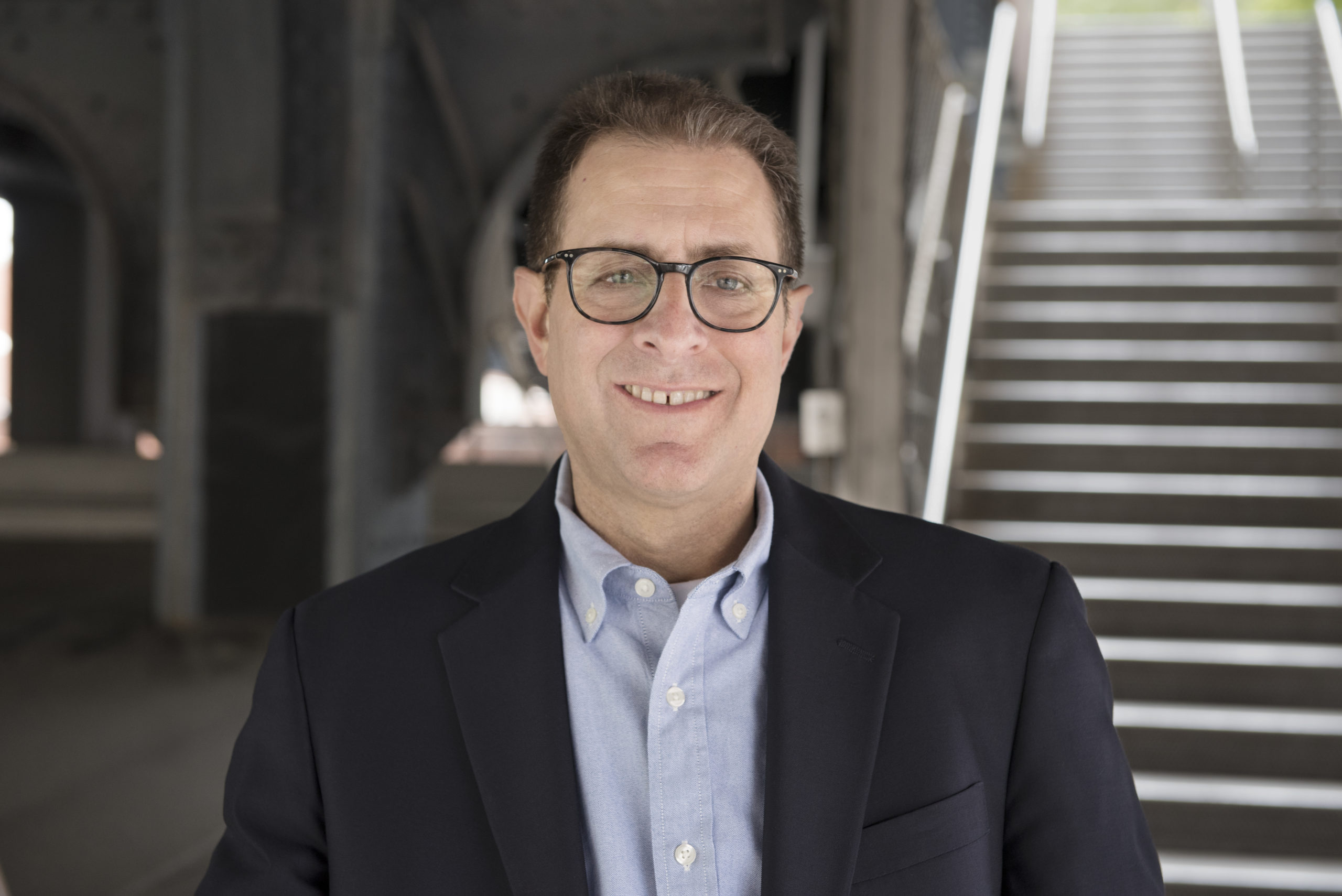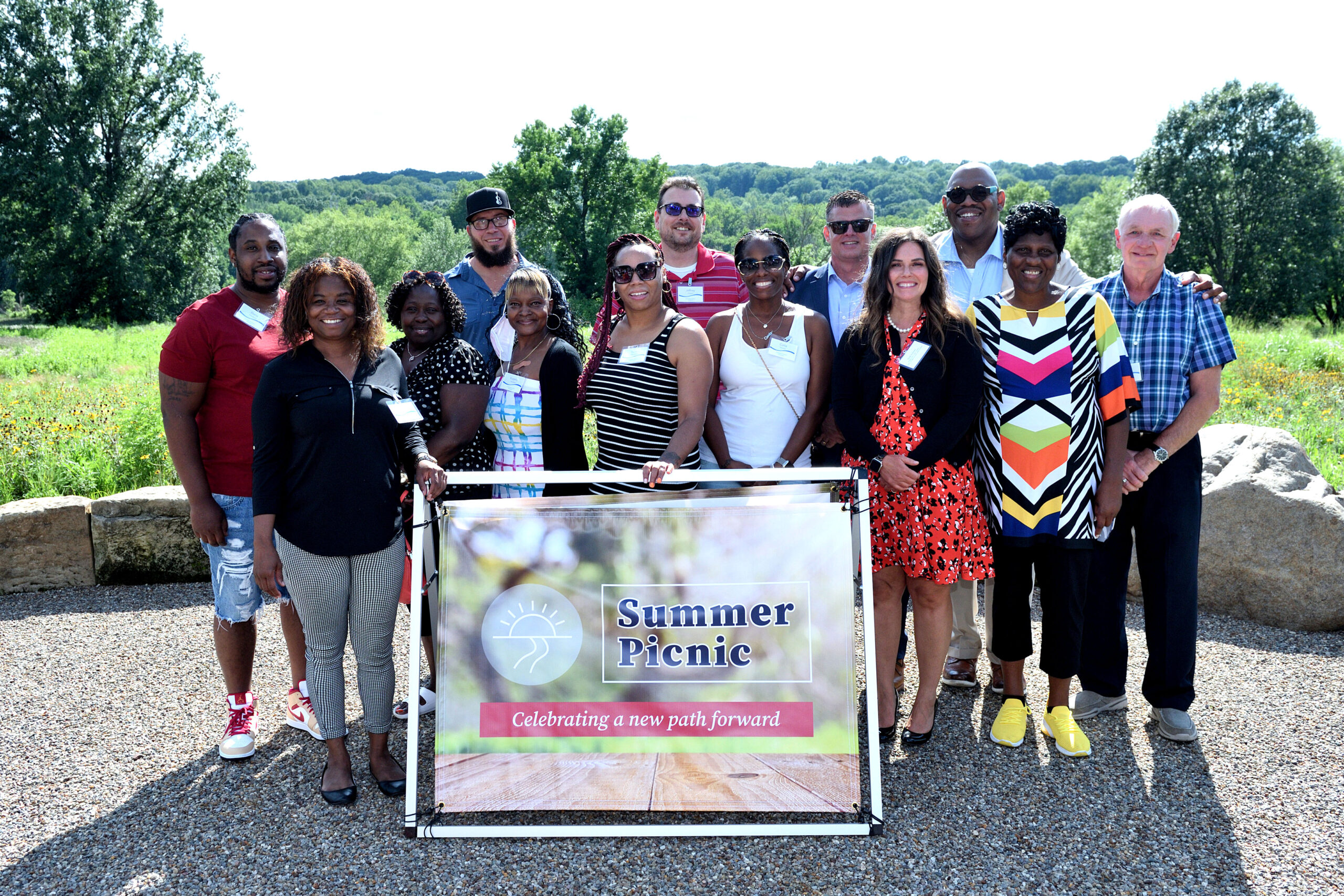We have the privilege of learning from our partners every day — asking questions and debating ideas on how our society can advance in mutual benefit, openness, equal rights, and self-actualization.
One of our partners is the Policing Project at NYU. Led by professor Barry Friedman, the Policing Project is a national leader on policing reform: working with a range of stakeholders including communities, municipal leaders, and policing agencies, conducting foundational research, and answering the hard questions inherent in equitable and democratically accountable policing.
We spoke with Professor Friedman in January 2021 to learn more about the project’s work and approach to criminal justice reform. This conversation has been edited for length and clarity.
CKF: What do you think should be done to improve policing in America?
Friedman: There’s a lot of work to be done — it requires patience and attention. My great worry is that this moment of national salience around policing comes and goes. Stewarding policing is not a one-time thing.
We need front–end accountability. The mistake everybody has made in police reform is to think that things will get fixed simply by punishing people after things have gone wrong. Back-end accountability is important, but we also need to regulate policing up front by bringing the public voice and transparency. All of our work is about that.
A well–functioning police department is responsible to the communities that it serves. It does not use force except when it’s absolutely necessary, and the force is proportional to the need. The department is very careful to make sure it is not exacerbating racial disparities that already exist in society but is doing what it can to ameliorate them. When it adopts surveillance technologies, it is aware of when it is appropriate or inappropriate to use them — and follows the community’s lead.
We should also develop a holistic first–response mechanism. I’ve studied training regimes for police departments and data about what cops do every day, and reached the same conclusion as many others: Police are ill-trained to actually resolve the issues that we foist upon them. What to do about that is an enormous question and extremely difficult. Our Reimagining Public Safety Project is all about this. We’re engaging national experts, social scientists, and municipal experts on how to move to alternative response mechanisms that achieve optimal outcomes.
CKF: Tell us about your experience working with police officers.
Friedman: We’ve gotten to know police all around the country, many of whom are extremely dedicated and admirable, and we are proud to call them friends. Everything is polarized in our country right now. You’re for the police or against them — you want to defund or abolish them, or you want to support them. Polarized debates like that rarely bear any relationship to the nuance of reality. You can be supportive of the police and still want to see change — even substantial change. Friends are open with one another about that.
I didn’t actually know police officers before I started doing this work, and I have met some of the most committed, well-intentioned, hardworking people I’ve ever met. I admire how committed they are to seeing that this job is done well. I’ve also encountered some cops that made a less-than-good impression on me. Like in any field, there are going to be good ones and bad ones.
The large problem we have in society is not that there are some bad cops. The problems are systemic and institutional, and we need to make institutional change. I think most policing leaders understand that. Nobody likes to be told, “You’re rotten and you have to change everything.” But I think people are very often willing to hear, “We understand the problems and challenges you face. We’d like to work with you to try to fix them.” That has been our attitude at The Policing Project. It does not mean that we are naive about or blind to the very real problems of policing. I would not be doing this work if I didn’t think there were problems in policing. But the trick is to figure out how to best affect change. And that means working with all stakeholders.
CKF: How do you think about alternatives to policing?
Friedman: I don’t ask, “Do we need the police here?” I think that’s the wrong question. The question is, do we need force here? Do we need law enforcement? Do we need something else here? And you have to be clear about the “something else” options. Very often it’s a combination.
Take the example of a domestic argument. You might need mediation, social work, and force all present. You can do that with three responders, or you could do it with one responder. That’s a question we need to figure out if we want to make change.
People talk about the police “fighting crime.” But what does that mean? Police rarely show up at a crime scene while the crime is in progress. If it’s a violent crime scene, you probably need victim support. How well are police trained in that? You need forensic investigation skills. How well are most police trained in that?
Or take parking enforcement. I don’t see any reason for armed officers. Does having an armed officer present actually exacerbate the problem? These are extremely complicated questions without easy answers, but they are the right questions to ask.
CKF: What is your Beyond the Conversation project?
Friedman: When the Policing Project was started, there was a lot of interest in police–community engagement. But the problem is, when people talk about community engagement, they’re usually not thinking about gathering community input. They’re talking about athletic leagues, or coffee with a cop, or beat meetings. These are valuable, but they are not designed to let the community say, “This is what we think policing should look like in our community.” The Beyond the Conversation project is focused on moving toward this kind of engagement framework.
We started with a national survey, and then we visited at least five jurisdictions to see how engagement happened. One of the things we looked at were Community Advisory Boards. We held a big convening, and we’re working on a website. We’ll soon publish a report on Community Advisory Boards which is quite critical of how they function right now.
These materials are meant to be a resource for communities and the police to make sure that engagement happens in a meaningful way.
CKF: What are your thoughts on technology and policing?
Friedman: Technology is neither good nor bad. The wrong way to think about it, like policing itself, is to say we’re in favor or we’re against. The question is what good you can get out of the technology, and what harms are there that you need to get rid of or mitigate. And then there has to be public voice in these decisions.
Take body cameras. They seem like a technology for good. We’re going to be able to hold police accountable. But a lot of jurisdictions don’t have a release policy for the body–cam footage. And if you don’t have a policy, then there’s no way you can get the kind of accountability the community wants. So the question is: How do you squeeze the good out of technologies, while avoiding the bad? The answer is to adopt a sound policy, and do it with community input.
For example, the L.A. Police Commission was struggling with the question of when video should be released after an officer–involved shooting, and they came to us to help solicit community input. We went to L.A., held community meetings, did a survey and a video, and wrote a report which led the department to adopt the video–release policy that is now the law in California statewide.
CKF: What advice do you have for other philanthropies?
Friedman: The grant from CKF came at exactly the right moment, enabling us to aggressively step into the national debate.
Most not-for-profit organizations, particularly new ones, struggle to fund core administrative needs. Funders are eager to give money to projects that sound enticing, but they’re not as eager to fund core functions of an organization, whether they’re communications or fundraising or administrative. But these things are vital. You can’t survive without them. The grant from CKF liberated us to work on this vital topic unencumbered. The level of gratitude we have is enormous.
The Charles Koch Foundation partners with social entrepreneurs to drive societal progress through academic research and innovations that help all learners realize their potential. Read more about the Foundation’s support for academic research on criminal justice.










